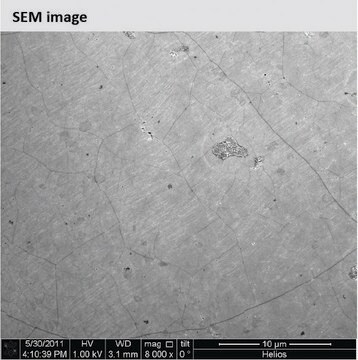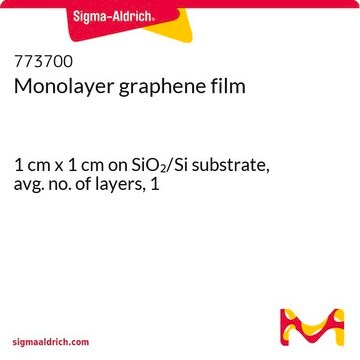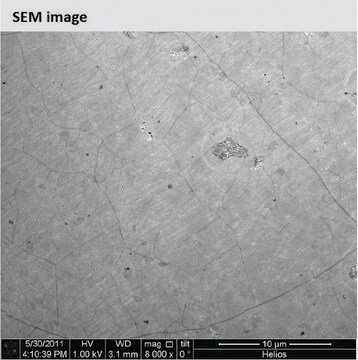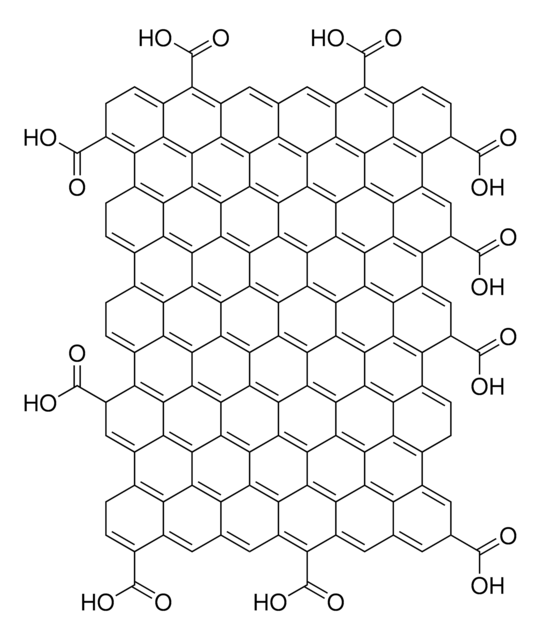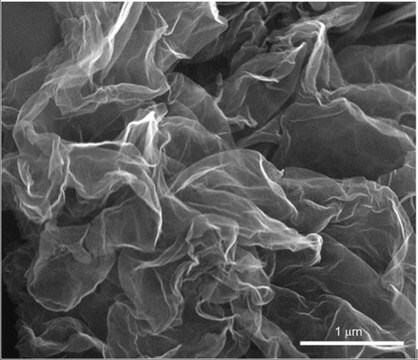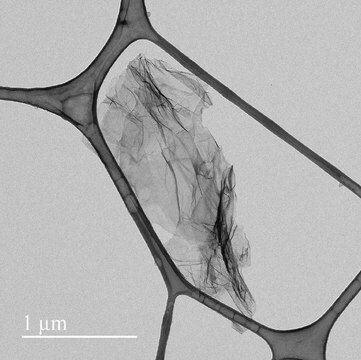799009
Graphene, monolayer film
1 in x 1 in on copper foil, avg. no. of layers, 1
Sinonimo/i:
Graphene/Cu
About This Item
Prodotti consigliati
product name
Monolayer graphene film, 1 in x 1 in on copper foil, avg. no. of layers, 1
Livello qualitativo
Descrizione
Coverage: >95%
FET Electron Mobility on Al2O3: 2;000 cm2/V·s
FET Electron Mobility on SiO2/Si (expected): 4; 000 cm2/V·s
Grain size: Up to 10 μm
Number of graphene layers: 1
Transparency: >97%
Forma fisica
film
Caratteristiche
avg. no. of layers 1
Resistenza
350 Ω/sq
Lungh. × largh. × spess.
1 in. × 1 in. × (theoretical) 0.245 nm, monolayer graphene film
1 in. × 1 in. × 18 μm, copper foil substrate
Colore
transparent
Cerchi prodotti simili? Visita Guida al confronto tra prodotti
Descrizione generale
Transfer Method: Clean transfer method
Quality Control: Optical Microscopy & Raman checked
Applicazioni
Codice della classe di stoccaggio
11 - Combustible Solids
Classe di pericolosità dell'acqua (WGK)
WGK 3
Punto d’infiammabilità (°F)
Not applicable
Punto d’infiammabilità (°C)
Not applicable
Scegli una delle versioni più recenti:
Possiedi già questo prodotto?
I documenti relativi ai prodotti acquistati recentemente sono disponibili nell’Archivio dei documenti.
I clienti hanno visto anche
Articoli
Professor Gogotsi and Dr. Shuck introduce MXenes: a promising family of two-dimensional materials with a unique combination of high conductivity, hydrophilicity, and extensive tunability.
Advanced technologies for energy conversion and storage are widely sought after for their potential to improve consumer and electronic device performance as well as for the prospect of reducing the societal and environmental impact of energy generation.
The production of hydrogen by catalytic water splitting is important for a wide range of industries including renewable energy petroleum refining and for the production of methanol and ammonia in the chemical industry.
Il team dei nostri ricercatori vanta grande esperienza in tutte le aree della ricerca quali Life Science, scienza dei materiali, sintesi chimica, cromatografia, discipline analitiche, ecc..
Contatta l'Assistenza Tecnica.
